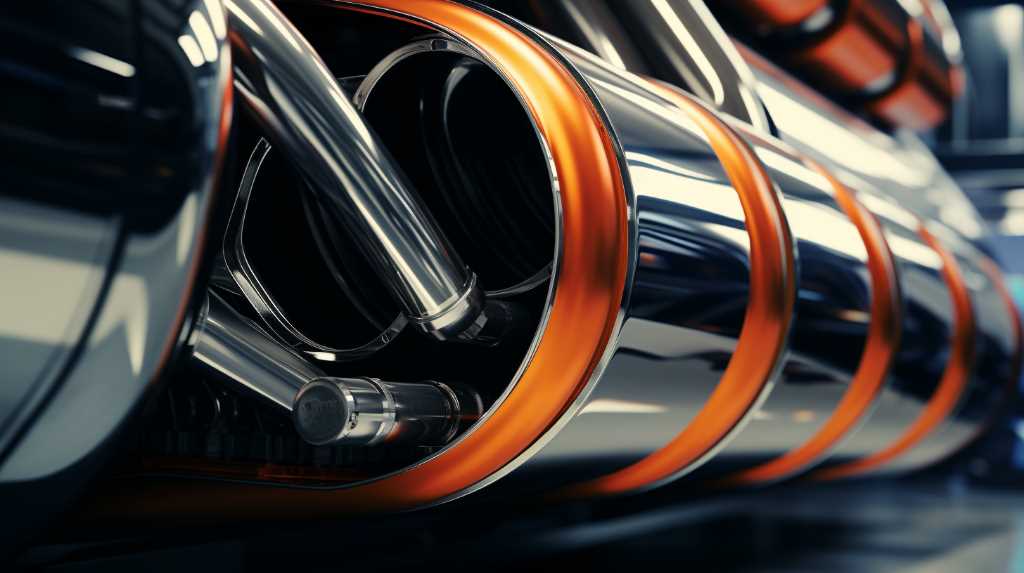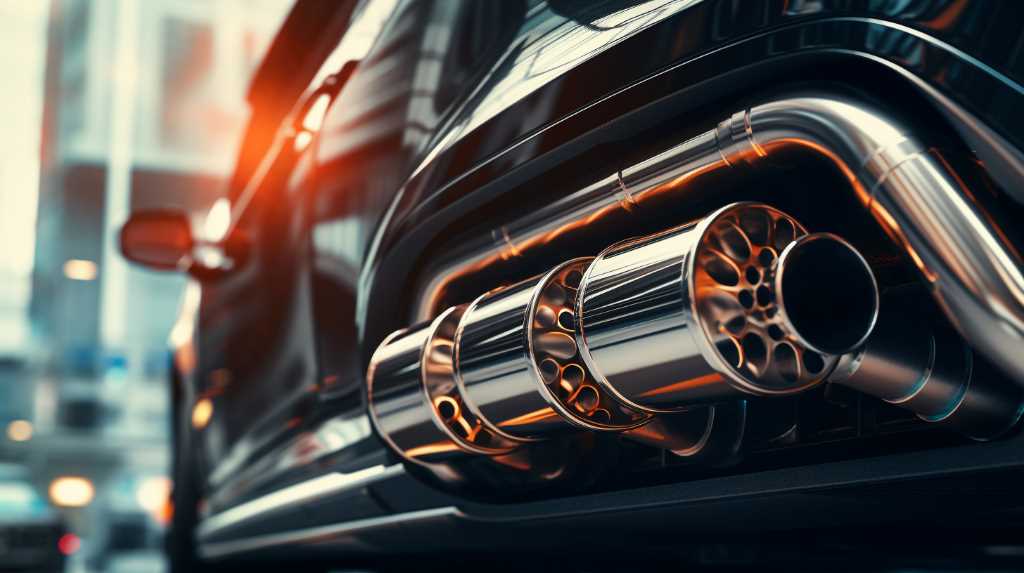Are you looking to boost your car’s performance? In this article, we will compare performance exhaust systems with stock exhaust systems, helping you make an informed decision.
Discover how performance exhaust systems can unleash power, improve your car’s performance, and enhance its sound and style. We’ll also dive into cost considerations, durability, installation, and maintenance. By the end, you’ll have the knowledge you need to choose between stock and performance exhaust systems.
Key Takeaways
- Performance exhaust systems increase the flow of exhaust gases and reduce backpressure, resulting in increased horsepower and torque.
- Performance exhaust systems often have larger diameter pipes and high-flow mufflers, which can improve fuel efficiency by reducing backpressure.
- Performance exhaust systems produce a deep, aggressive sound, while stock exhaust systems are designed to be quiet and blend in.
- Stock exhaust systems meet emission standards and comply with noise regulations, while performance exhaust systems may not meet the same standards and can violate noise regulations.
The Basics: Understanding Stock Exhaust Systems
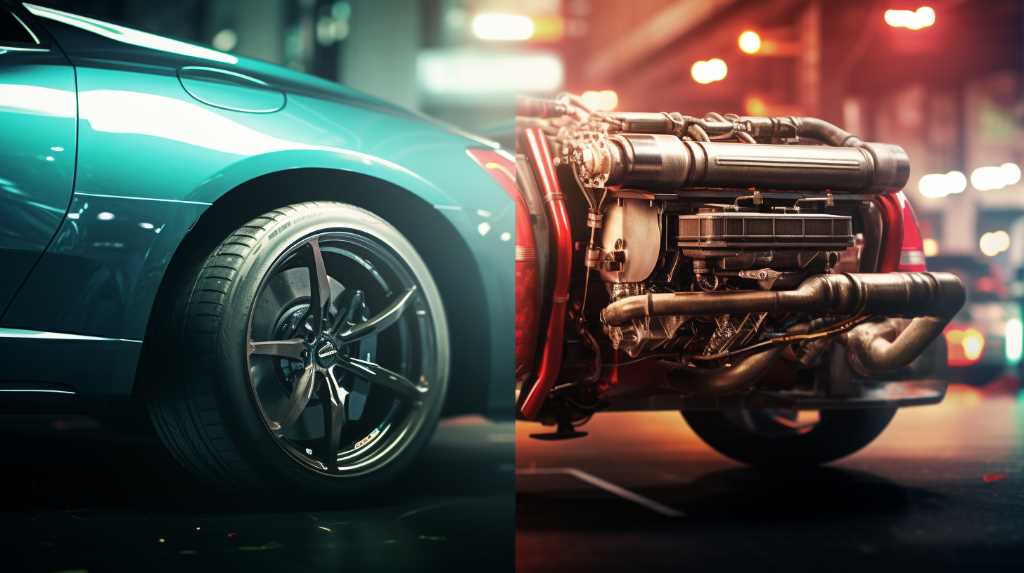
You need to grasp the fundamentals of stock exhaust systems to understand their impact on your car’s performance. A stock exhaust system is the one that comes pre-installed by the manufacturer. It’s designed to meet certain specifications and standards, but it may not always provide the best performance for your car.
The stock exhaust system consists of several components, including the exhaust manifold, catalytic converter, muffler, and tailpipe. The exhaust manifold collects the exhaust gases from the engine cylinders and directs them towards the catalytic converter.
The catalytic converter helps to reduce harmful emissions by converting them into less harmful substances. The muffler is responsible for reducing the noise produced by the exhaust gases, while the tailpipe releases the exhaust gases out of the vehicle.
The stock exhaust system is designed to provide a balance between performance, fuel efficiency, and noise reduction. However, it may restrict the flow of exhaust gases, which can limit your car’s performance potential. Upgrading to an aftermarket exhaust system can help improve your car’s performance by increasing the flow of exhaust gases and reducing backpressure.
Unleashing Power: Exploring Performance Exhaust Systems

Can an aftermarket performance exhaust system really unlock your car’s hidden power and improve its performance? The answer is yes. Performance exhaust systems are designed to optimize your car’s engine performance by increasing the flow of exhaust gases and reducing backpressure. By doing so, these systems can unleash additional power that’s typically restricted by the stock exhaust system.
One of the main advantages of performance exhaust systems is their ability to increase horsepower and torque. The improved flow of exhaust gases allows the engine to breathe more efficiently, resulting in a boost in power output. Additionally, performance exhaust systems often feature larger diameter pipes and high-flow mufflers, which further enhance the overall performance of your car.
Moreover, a performance exhaust system can also improve fuel efficiency. By reducing backpressure and improving exhaust flow, the engine doesn’t have to work as hard to expel exhaust gases. This means that less energy is wasted, resulting in better fuel economy.
Furthermore, performance exhaust systems can enhance the overall driving experience. The deep, aggressive sound produced by these systems adds a sporty and exhilarating note to your car. It not only sounds impressive but also gives you a sense of the increased power under the hood.
Performance Gains: How Performance Exhaust Systems Improve Car Performance
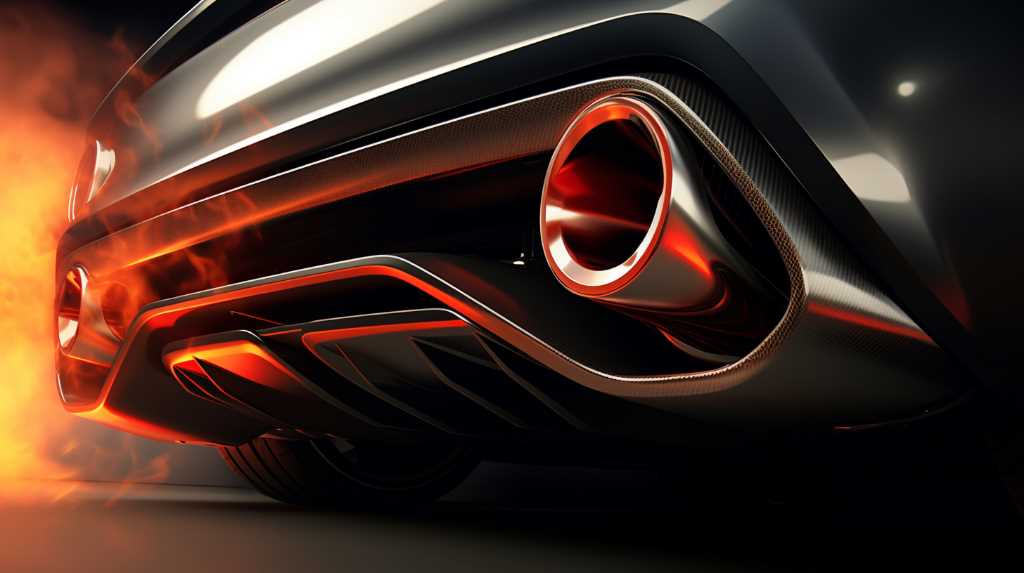
Installing a performance exhaust system can significantly improve your car’s performance by increasing horsepower and torque. By replacing the factory exhaust system with a high-performance one, you can experience a noticeable boost in power. This is because performance exhaust systems are designed to optimize the flow of exhaust gases, allowing for better engine performance.
One of the main ways that performance exhaust systems improve car performance is by reducing back pressure. Back pressure is created when the exhaust gases encounter resistance within the exhaust system. A performance exhaust system reduces this resistance by using larger diameter pipes and high-flow mufflers, allowing the exhaust gases to flow more freely. As a result, the engine can expel exhaust gases more efficiently, leading to increased horsepower and torque.
Additionally, performance exhaust systems often feature mandrel-bent pipes. Unlike traditional crush-bent pipes, mandrel-bent pipes maintain a constant diameter throughout, minimizing any disruptions in the exhaust flow. This smooth flow of exhaust gases further enhances performance and can help improve fuel efficiency.
Furthermore, performance exhaust systems can produce a more aggressive and sporty sound. The unique sound of a performance exhaust not only enhances the driving experience but also gives the impression of a more powerful and high-performance vehicle.
Sound and Style: Comparing the Aesthetics of Stock and Performance Exhaust Systems

When it comes to the aesthetics of your car’s exhaust system, comparing the sound and style of stock and performance options can make a noticeable difference in enhancing your vehicle’s overall appearance.
The stock exhaust system that comes with your car is designed to meet certain standards and regulations, but it may not necessarily provide the look and sound that you desire. On the other hand, performance exhaust systems offer a range of options that can give your car a more aggressive and sporty look.
One of the main differences between stock and performance exhaust systems is the sound they produce. Stock exhaust systems are typically designed to be quiet and unobtrusive, whereas performance exhaust systems are engineered to produce a deeper and more powerful sound. This can give your car a more muscular and intimidating presence on the road.
In terms of style, stock exhaust systems are usually designed to be hidden and blend in with the rest of the car’s body. Performance exhaust systems, on the other hand, often feature larger and more eye-catching tips, which can add a touch of visual flair to your vehicle. Additionally, some performance exhaust systems are made from high-quality materials like stainless steel or carbon fiber, which not only enhance the appearance of your car but also provide durability and longevity.
Cost Considerations: Evaluating the Price Difference Between Stock and Performance Exhaust Systems
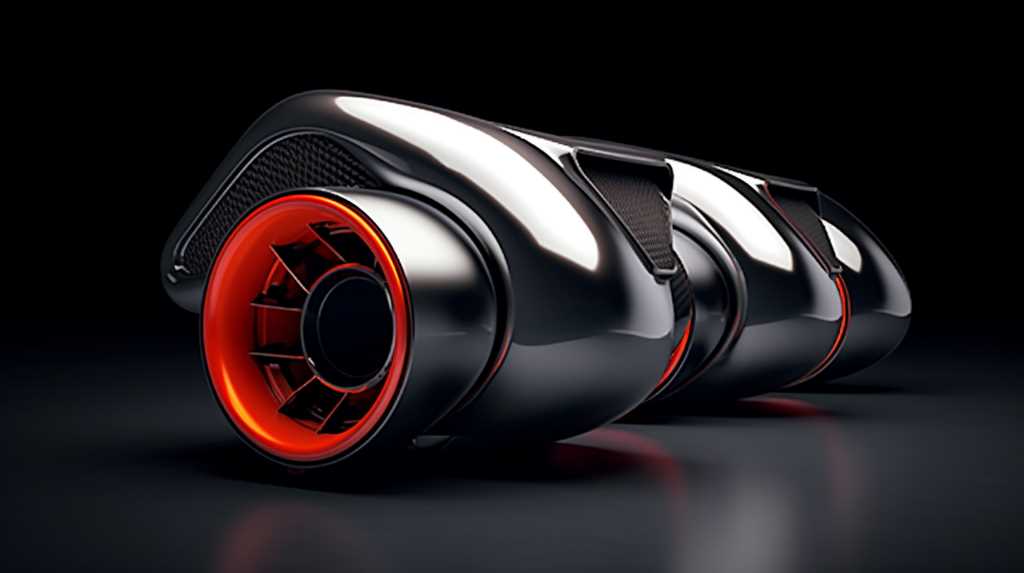
To make an informed decision about which exhaust system to choose, you should consider the price difference between stock and performance options. When it comes to cost considerations, it’s important to weigh the benefits of a performance exhaust system against its higher price tag.
While stock exhaust systems are generally less expensive than their performance counterparts, they may not provide the same level of performance enhancement or customization options.
Performance exhaust systems often come with a higher price due to their advanced engineering and materials. These systems are designed to optimize airflow, resulting in improved horsepower and torque. They may also feature larger diameter pipes, high-flow mufflers, and mandrel-bent tubing for better exhaust gas flow. These enhancements can significantly increase the overall performance of your car.
On the other hand, stock exhaust systems are built to meet the manufacturer’s specifications for noise reduction, emissions control, and cost-effectiveness. While they may be less expensive, they aren’t designed with performance as a top priority. Stock exhaust systems are typically quieter and have more restrictive designs, which can limit the potential power gains of your car.
When evaluating the price difference between stock and performance exhaust systems, it’s essential to consider your priorities. If you value improved performance and customization options, investing in a performance exhaust system may be worth the higher cost. However, if cost is a significant factor and you’re satisfied with the factory performance of your car, a stock exhaust system could be a more cost-effective choice.
Ultimately, the decision should be based on your budget and performance goals.
Durability and Longevity: Assessing the Lifespan of Stock and Performance Exhaust Systems
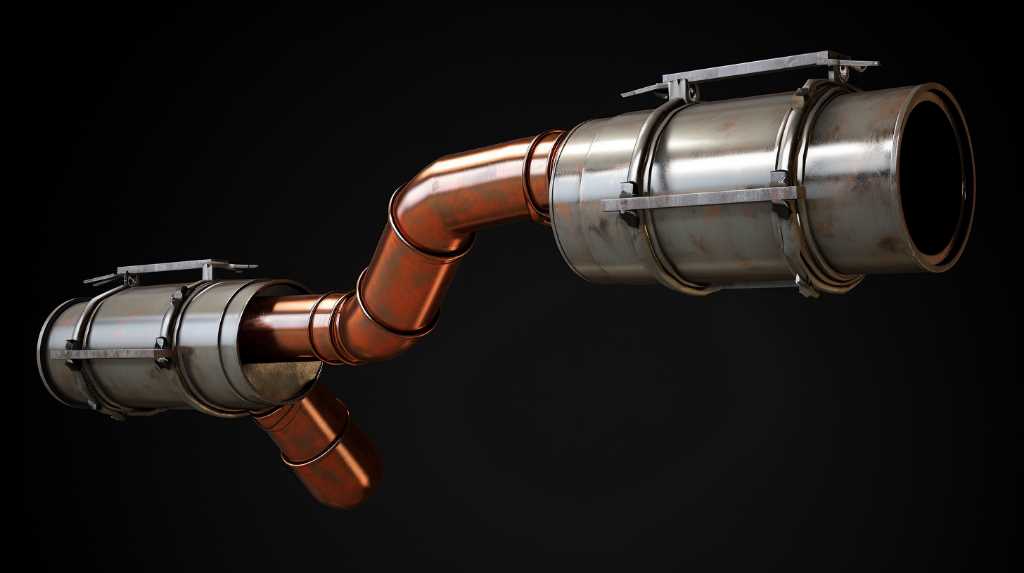
To determine the durability and longevity of both stock and performance exhaust systems, you must consider a few key factors.
Stock exhaust systems are designed to last for a long time, typically throughout the lifespan of the vehicle. They’re made from durable materials such as stainless steel, which can withstand high temperatures and resist corrosion. However, stock exhaust systems are usually not optimized for performance, which means they may not offer the same level of durability under extreme driving conditions.
On the other hand, performance exhaust systems are often made from higher quality materials, such as aluminized steel or titanium, which are known for their strength and corrosion resistance. These systems are also designed to improve airflow and reduce backpressure, resulting in better engine performance. However, the increased performance may come at the cost of reduced durability. Performance exhaust systems are often subjected to higher temperatures and more extreme driving conditions, which can put additional stress on the components and potentially lead to premature wear and tear.
Ultimately, the durability and longevity of an exhaust system will depend on various factors, including the quality of materials used, driving habits, maintenance, and environmental conditions. Regular inspections and maintenance can help prolong the lifespan of both stock and performance exhaust systems.
It’s important to weigh the benefits of improved performance against the potential trade-offs in longevity when deciding between stock and performance exhaust systems.
Installation and Maintenance: Comparing the Ease of Fitting and Upkeep for Stock and Performance Exhaust Systems
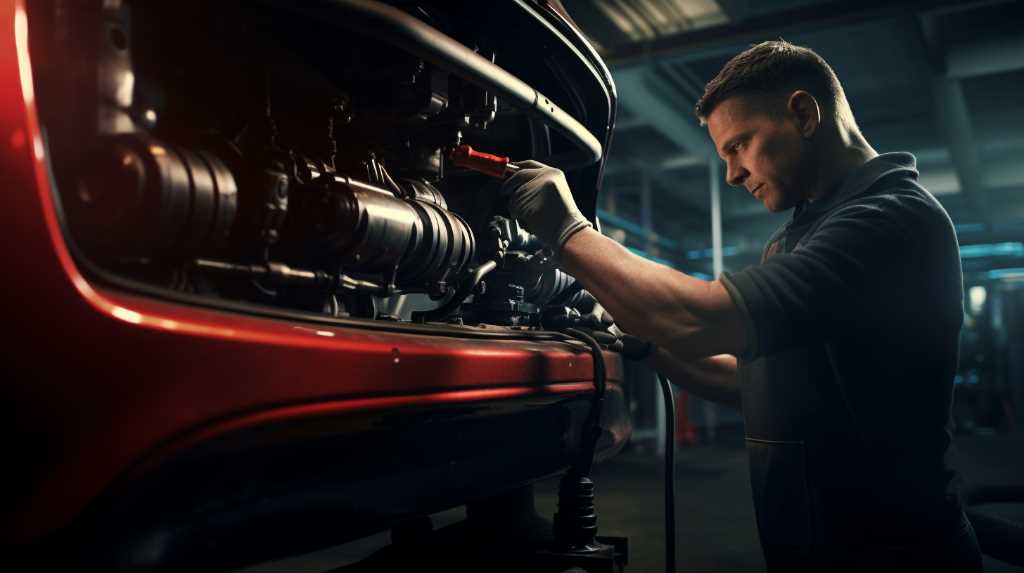
For a seamless installation and hassle-free maintenance, you can compare the ease of fitting and upkeep between stock and performance exhaust systems.
When it comes to installation, stock exhaust systems are generally easier to fit because they’re designed to directly replace the original system, using the same mounting points and connections. This means that you don’t have to make any modifications or adjustments to your car during the installation process.
On the other hand, performance exhaust systems may require some modifications to be made to your car, such as cutting or welding, in order to fit properly. This can make the installation process more complex and time-consuming.
In terms of maintenance, stock exhaust systems usually require minimal upkeep. They’re designed to last a long time without needing any major repairs or replacements. Routine maintenance, such as checking for leaks or corrosion, and replacing worn-out parts, is usually sufficient to keep a stock exhaust system in good condition.
On the other hand, performance exhaust systems may require more frequent maintenance. This is because they’re often made from high-quality materials that are designed to withstand the increased heat and pressure generated by a high-performance engine. Regular inspections and maintenance, such as checking for leaks and replacing worn-out parts, are important to ensure the performance and longevity of a performance exhaust system.
Legal Implications: Understanding the Emission and Noise Regulations for Stock and Performance Exhaust Systems

If you want to avoid legal issues, it’s important to understand the emission and noise regulations for both stock and performance exhaust systems. These regulations vary depending on the country and region you’re in, so it’s crucial to familiarize yourself with the specific laws in your area.
In terms of emissions, stock exhaust systems are designed to meet the standards set by regulatory bodies. They’re equipped with catalytic converters that help reduce harmful emissions, such as carbon monoxide and nitrogen oxides. Performance exhaust systems, on the other hand, may not meet these same standards and can potentially result in higher emissions.
When it comes to noise regulations, stock exhaust systems are usually designed to produce a certain level of noise that complies with local laws. These systems are engineered to minimize excessive noise and ensure a quieter driving experience. Performance exhaust systems, however, are often designed to enhance the sound of the engine and may produce louder noise levels. This can lead to violations of noise regulations and potential legal consequences.
It is important to note that modifying your exhaust system, especially with a performance system, may void your vehicle’s warranty. Additionally, failing to comply with emission and noise regulations can result in fines, vehicle impoundment, or even legal action.
To ensure you stay within the legal boundaries, it’s recommended to consult with local authorities or a professional mechanic who’s knowledgeable about the regulations in your area. They can provide guidance on choosing an exhaust system that complies with emission and noise regulations while still enhancing your vehicle’s performance.
Making the Choice: Factors to Consider When Deciding Between Stock and Performance Exhaust Systems
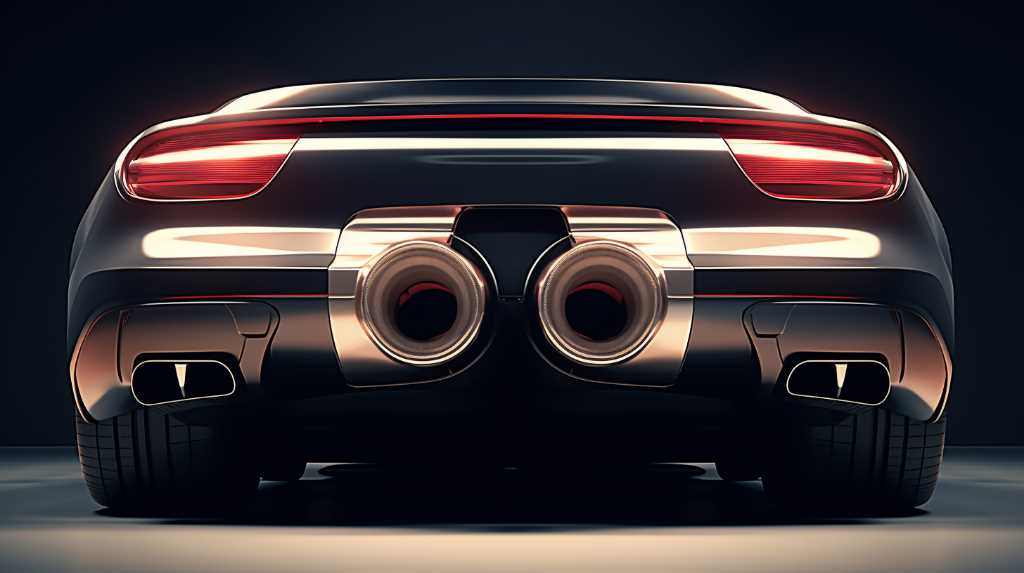
When choosing between stock and performance exhaust systems, there are several factors you should consider. First, think about the sound and performance you desire from your car. Performance exhaust systems often provide a louder and more aggressive sound, while stock systems are designed for a quieter ride.
Next, consider the cost and installation process. Performance systems can be more expensive and may require professional installation, whereas stock systems are typically more affordable and easier to install.
Sound and Performance
Consider these three factors when deciding between stock and performance exhaust systems for your car’s sound and performance. First, think about the sound you want your car to make. Stock exhaust systems tend to be quieter, while performance exhaust systems offer a louder, more aggressive sound. If you prefer a subtle and discreet sound, the stock exhaust may be the better choice for you. However, if you want to turn heads and make a statement, a performance exhaust system could provide the attention-grabbing sound you desire.
Second, consider the performance benefits. Performance exhaust systems are designed to optimize airflow, which can result in improved horsepower and torque. If you’re looking to enhance your car’s performance, a performance exhaust system could be the way to go.
Lastly, take into account any legal restrictions or noise regulations in your area. Some performance exhaust systems may not be street legal or may exceed noise limits, so it’s important to check local regulations before making your decision.
Cost and Installation
One important factor to keep in mind when deciding between stock and performance exhaust systems is the cost and ease of installation. Upgrading to a performance exhaust system can be more expensive compared to sticking with the stock system. Performance exhaust systems are usually made from higher quality materials, such as stainless steel, which can increase their price.
Additionally, installation of a performance exhaust system may require more time and effort compared to a stock system. It might involve removing the stock system, modifying certain components, and ensuring proper fitment.
On the other hand, installing a stock exhaust system is generally easier and less time-consuming since it’s a direct replacement for the existing system. Therefore, when making a decision, it’s important to consider your budget and the level of expertise required for installation.
Emissions and Regulations
By understanding the impact on emissions and adhering to regulations, you can make an informed choice between stock and performance exhaust systems. Emissions play a crucial role in the environmental impact of your vehicle. Stock exhaust systems are designed to meet the emissions standards set by regulatory authorities. They’re equipped with catalytic converters and other components to minimize harmful pollutants released into the atmosphere.
On the other hand, performance exhaust systems may alter the emissions output of your vehicle. While some performance systems are engineered to maintain or even improve emissions levels, others may result in increased emissions. It’s essential to ensure that any modifications made to your exhaust system comply with local regulations to avoid legal consequences.
Always consult with experts and consider the impact on emissions when deciding between stock and performance exhaust systems.
Frequently Asked Questions
Can I Install a Performance Exhaust System on My Car Without Voiding the Warranty?
Yes, you can install a performance exhaust system on your car without voiding the warranty. However, it’s important to check with your car manufacturer or dealership to ensure that it complies with their warranty terms and conditions.
How Much Horsepower Can I Expect to Gain From Upgrading to a Performance Exhaust System?
You can expect to gain a significant amount of horsepower by upgrading to a performance exhaust system. It is a popular modification that improves car performance and enhances the overall driving experience.
Are There Any Legal Restrictions or Regulations Regarding Noise Levels With Performance Exhaust Systems?
Yes, there are legal restrictions and regulations regarding noise levels with performance exhaust systems. It’s important to check your local laws to ensure your system complies and avoid any potential fines or penalties.
What Are the Maintenance Requirements for a Performance Exhaust System Compared to a Stock Exhaust System?
When comparing maintenance requirements, a performance exhaust system may require more attention than a stock exhaust system. Regular inspections and cleaning are crucial to ensure optimal performance and longevity.
Will Upgrading to a Performance Exhaust System Affect My Fuel Efficiency?
Upgrading to a performance exhaust system may affect your fuel efficiency. While it can improve horsepower and torque, the increased airflow can lead to higher fuel consumption. Consider this trade-off when making your decision.
Conclusion
In conclusion, when deciding between stock and performance exhaust systems for your car, there are several factors to consider. Performance exhaust systems can provide increased power and a more appealing sound and style, but they come at a higher cost and may have legal implications. Stock exhaust systems, on the other hand, are more affordable and compliant with emission and noise regulations. Ultimately, the choice depends on your priorities and budget.
Related Articles
The Ultimate Guide to Performance Car Exhaust Systems
Next Exhaust Article: The Benefits of Cat-Back Exhaust Systems: A Buyer’s Guide
Previous Exhaust Article: Maximizing Horsepower: How Performance Exhausts Boost Engine Performance

Hey there, I’m Terra Frank, the driving force behind Motion Performance Motor Sports. I’m thrilled to have you here, exploring the fascinating world of cars, trucks, and everything related to automotive performance and accessories.


